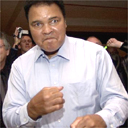| Non connesso |
 |
Iscritto il: ven mag 26, 2006 12:04 pm
Messaggi: 4139
Località: Bra (CN)
|
Deckard ha scritto: UGII, potresti postare l'articolo intero? Purtroppo non riesco a leggerlo!
Certo, nessun problema.
DETROIT—Toyota Motor Corp. is stretching out how long its new models are tested before they go into production and reducing the number of outside engineers it uses in a bid to overcome a spate of quality problems.
Randy Stephens, a senior Toyota engineer based in Ann Arbor, Mich., said company executives recognize that there were quality issues with the last generation of vehicles, which were developed while the company was in a global-growth mode. Executives began talking about making changes nearly a year ago, he said, but the recent recall problems have spurred the company to act.
"As we looked at this past generation of vehicles it did seem to be all about the growth of the company, and there were lapses," said Mr. Stephens, who works at the Toyota Technical Center near Ann Arbor and is currently in charge of the Toyota Avalon, a large sedan. "We are definitely reforming the processes to be ultracareful."
Experience WSJ professional Editors' Deep Dive: Heightened Scrutiny Hits ToyotaAUTOMOTIVE NEWS
Toyota Panel to Investigate Electronic ControlsIHS Global Insight Daily Analysis
U.S. to Review Unintended AccelerationAutomotive News
Toyota's Safety Blitz May Delay Product PlanAccess thousands of business sources not available on the free web. Learn More The changes in development follow Toyota's announcement that it will recall up to 270,000 Lexus models globally because of an engine problem that could cause stalling. The auto maker has been ravaged by quality and safety concerns in the past six months. It has recalled more than 8.5 million vehicles globally for problems related to unintended acceleration and tens of thousands more for steering, braking and gas-tank flaws in vehicles across its lineup.
Executive Vice President Takeshi Uchiyamada, Toyota's chief engineer globally, is spearheading the effort, which is similar to an effort in 2006 after Toyota had a spike in quality problems. Product-development times may be extended by two to six months, said a senior Beijing-based Toyota sales and marketing executive.
In addition to extending product-development lead times, Mr. Uchiyamada and his engineering team have decided to cut the number of engine and other key-feature variants and options to simplify and narrow the scope of engineering work, allowing engineers to focus more on quality.
Toyota may also further reduce the use of virtual engineering and begin using more vehicle prototypes. Doing so extends development time and increases costs.
In the case of the Avalon, which is developed and engineered in the U.S., Mr. Stephens said he is adding four weeks of additional testing to his development schedule. The testing will include using consumers and independent engineers to put "fresh eyeballs" on the models before they go into production. He said the company will use prototypes when necessary.
Toyota is trying not to lengthen the overall development time for a vehicle, which is 21 or 48 months depending on when you start counting, Mr. Stephens said. The idea is that other parts of the process could be shortened to allow more testing time.
"I think taking a step back and making sure that they have all of their processes in mind is probably a prudent move," said Michael Robinet, an automotive analyst with IHS Automotive. "I don't think they are going to go backwards from an efficiency standpoint, but what they may do is put more checks and balances in."
European Pressphoto Agency
Toyota's chief engineer globally, Takeshi Uchiyamada, above, is spearheading the new development effort.
The company is also working to bring development work that had been sourced to outside engineers back inside. Some outside engineers actually work side by side with Toyota's engineers inside Toyota research and development centers. But using contractors has led to a breakdown in communication and potential misunderstandings, Mr. Stephens said.
A senior Toyota engineer said the company uses outside engineers to do about 30% of its development work globally and seeks to reduce the ratio to 10%. Toyota spokeswoman Cynthia Mahalak, of the Toyota Technical Center, said she couldn't confirm the ratios.
"We're definitely trying to do that," Mr. Stephens said. "We are trying to do as much in-house as we can. It makes more sense for us. It is easier to control and understand the process."
Toyota had long held the U.S. crown for top quality and reliability among car makers. But last month, researcher J.D. Power & Associates said the Toyota brand fell to 21st from 7th overall in its annual Initial Quality Survey of new vehicles.
Meanwhile, Toyota's U.S. market share has declined to 14.3% in June from 15.3% a year earlier, according to Autodata Corp. Even more telling, Toyota's market share through the first six months of 2010 is 15.1%, down from 17% at the end of 2009.
In a study released last week, researcherEdmunds.com found that used car prices have risen by an unprecedented amount in the past year for nearly all brands except Toyota.
"Our daily job is as intense and thorough as it has ever been," Mr. Stephens said. "These issues that have come up were really a surprise for us—but a wakeup call because things can slip by."
Write to Norihiko Shirouzu at norihiko.shirouzu@wsj.com.
_________________
Alla guida di una KIA SPORTAGE 1.6 Turbo Benza Ibrida
Guidavo una Stelvio senza Apple CarPlay
Guidavo una sorprendente svedese - V90 D4
Guidavo una bella A6 SW TDI Grigio Floret. Veloce Comoda Bella Anonima
Guidavo una anonima e puzzolente 320d Touring MSport...
Guidavo una splendida Range Rover Evoque... Si, si girano tutti al semaforo...
Guidavo una fantastica A5 Sportback S-Line, 2.0 TDI 170cv...
|
|


